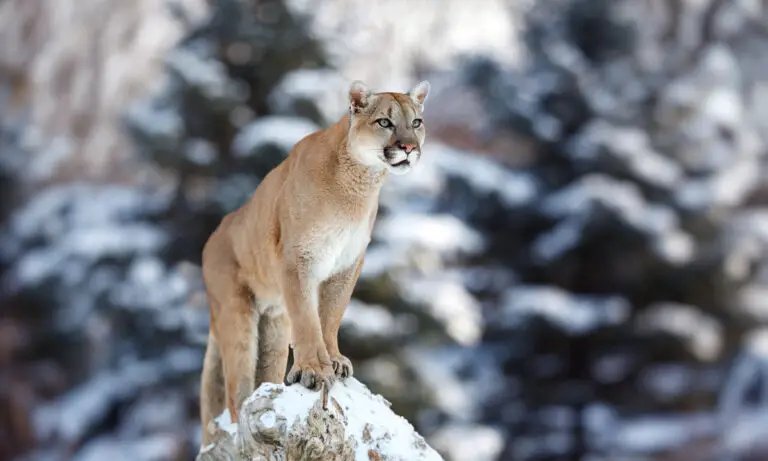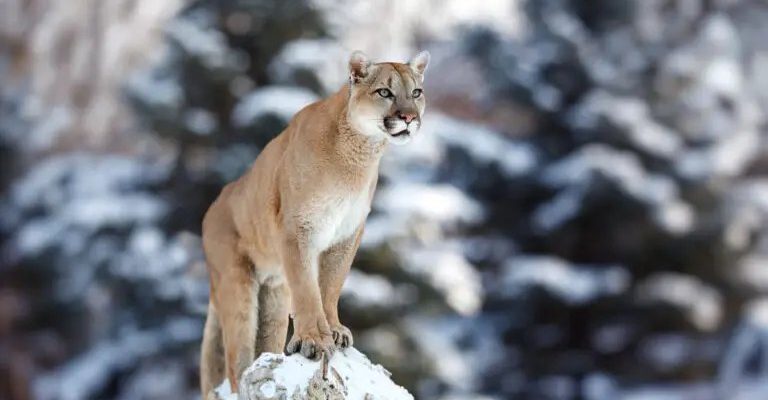
When we talk about cougars, we’re not just discussing their eating habits or how they catch prey. We’re looking at a complex relationship with nature, where every choice impacts their survival. Here’s the thing: understanding their diet and hunting strategies helps us appreciate these majestic animals even more. So, grab a cup of coffee, and let’s explore the world of cougars together.
What Do Cougars Eat? The Basics of Their Diet
Cougars are carnivorous creatures, which means their diet primarily consists of meat. They have a varied diet, but their preferred prey usually includes large mammals. Here’s a closer look at what a cougar typically eats:
- Deer: This is their favorite meal. Cougars often hunt mule deer and white-tailed deer, which provide a substantial amount of energy and nutrients.
- Elk: In certain regions, elk become a major part of their diet—especially when deer are less available.
- Smaller mammals: They also hunt smaller animals like coyotes, rabbits, and even raccoons if larger prey isn’t available.
You might be wondering how they decide what to eat. Cougars are opportunistic feeders. They’ll go after whatever is available and easiest to catch. Their diet can shift based on the season and the local animal population. This flexibility is one reason cougars thrive in various habitats, from forests to mountains to deserts.
The Art of the Hunt: How Cougars Catch Their Prey
Cougars are not just swift; they are incredibly skilled hunters. Their hunting strategies are as varied as their diets. Let’s break down how they approach a hunt:
- Stalking: Cougars rely heavily on stealth. They’ll quietly get as close as possible to their prey, often using the terrain for cover. You can think of them as the ultimate ninja of the animal kingdom, moving silently through the underbrush.
- Ambush: Once they are close enough, cougars will often launch surprise attacks. They use their powerful legs to leap onto their prey, delivering a swift kill with a bite to the neck.
- Patience: Sometimes, they’ll wait for the perfect moment, watching their prey from a distance. It’s all about timing—we can learn a lot about patience from cougars!
This combination of skills makes cougars effective hunters. They can take down animals much larger than themselves, using strength and strategy instead of just speed.
Hunting Behavior: Insights into Cougar Tactics
Let me explain a bit more about the specific tactics cougars use when hunting. Each hunt is unique and depends on various factors, including the terrain and the type of prey. Here are some behaviors that contribute to their hunting success:
1. Territory and Range: Cougars are solitary animals, and each one has a defined territory that can span miles. This territory allows them to access a variety of prey while minimizing competition with other cougars.
2. Tracking and Scent: They rely on their keen sense of smell to track prey. By sniffing around, they can detect scents that lead them to food sources. Imagine having a built-in GPS—this is how cougars navigate their hunting grounds.
3. Seasonal Hunting: Their hunting tactics may change with the seasons. In colder months, when animal movements are more predictable, cougars might adjust their strategies to take advantage of the patterns they observe in deer and other animals.
Understanding these subtle behaviors helps unravel the mysteries of how cougars manage to be such successful predators.
Competition and Food Sources
Cougars don’t just face challenges from their prey. They also have to contend with other predators and the changing environment. Here’s what that looks like:
– Competition for Prey: In areas where food is scarce, cougars sometimes compete with wolves and bears for the same food sources. In these situations, they need to rely on stealth and cunning even more.
– Human Encroachment: As humans expand into cougar territory, competition for prey becomes more intense. Cougars might venture closer to urban areas, searching for food, which can lead to conflicts with people.
– Ecosystem Impact: The presence of cougars plays a critical role in maintaining the balance of their ecosystem. By hunting deer and other large ungulates, they help control these populations, which in turn supports the health of vegetation and other wildlife.
This competition necessitates adaptability in the cougar’s hunting strategies. They must constantly adjust to changes in their environment to ensure their survival.
How Cougars Adapt Their Diet and Hunting with the Seasons
Seasonal changes significantly influence the diet and hunting strategies of cougars. Let’s look at how these big cats adapt when the seasons shift:
1. Spring and Summer: During these warmer months, cougars typically have access to abundant prey. Young deer are often born in spring, presenting an excellent opportunity for cougars to hunt. This is a time when cougars may also hunt more frequently, taking advantage of the plentiful food.
2. Autumn: As summer ends and temperatures drop, deer become more active, preparing for winter. Cougars may increase their hunting efforts, utilizing their stealth and strength to catch deer preparing to migrate or find winter food sources.
3. Winter: In winter, food becomes scarce, and cougars may have to travel farther from their territory to find food. They might alter their behavior, being more patient and strategic, often targeting weaker or younger animals that will be easier to catch in the harsh weather.
By adjusting their strategies according to the seasons, cougars showcase their ability to survive and thrive no matter what challenges they face.
The Importance of Cougars in Their Ecosystem
Cougars are not just solitary hunters; they play a crucial role in maintaining the balance of their ecosystems. Here’s why their presence matters:
– Controlling Prey Populations: By hunting deer and other large mammals, cougars help control these populations. This prevents overgrazing and ensures that plant life remains healthy, which benefits other animals and the ecosystem as a whole.
– Biodiversity: Cougars are considered apex predators. Their presence helps maintain biodiversity by supporting a variety of other species. When cougars thrive, it often indicates a healthy ecosystem.
– Human Interaction: Understanding cougars helps us coexist with them better. Recognizing their dietary habits and hunting strategies can inform conservation efforts and promote awareness about living alongside these magnificent creatures.
In this way, cougars serve as a key component of the natural world, helping to ensure that ecosystems remain balanced and thriving.
In closing, the *diet and hunting strategies of the cougar* reveal a complex and captivating predator that plays an essential role in its environment. From their flexible eating habits to their skilled hunting tactics, cougars demonstrate adaptability and resilience. As we learn more about them, we gain insights not only into their lives but also into the health of the ecosystems they inhabit. So, the next time you think about cougars, remember their vital place in the wild—masters of the hunt, guardians of balance.

